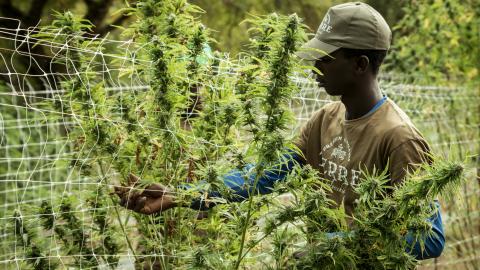
November 21, 2017
The Northwest Center for Occupational Health and Safety supports occupational health & safety education and training in Alaska, Washington, Oregon, and Idaho. Through the Professional Training Opportunities Program (PTOP), small grant funding is available to support applicants from all disciplines and fields for projects and activities that address worker health.
Who is eligible? Students (Associates Degree, Undergraduate, Graduate, and Post-Doctoral-seeking from any discipline or field of study) and non-profit staff at organizations interested in developing Occupational Health and Safety expertise.
What kind of activities qualify? For their proposal, the applicant may propose a (1) Research project or demonstration; (2) Internship or other learning experiences; (3) Activity or program. All proposals must address health and/or safety issues in the workplace or for working populations.
How much money? A maximum of $10,000 (including direct and indirect costs) will be available for each project/recipient, but expect most projects will be for lesser amounts.
How do I apply? Visit http://deohs.washington.edu/nwcohs/grants to read the “Request for Application” (RFA) which contains the full instructions on how to apply.
Recently funded projects include:
 Cannabis Industry and Pesticide Usage (2016-2017) Richie Evoy, MPH, Oregon State University Richie studied the pesticides used in commercial cannabis production, and described residual levels of pesticides found in Oregon cannabis products. Richie found that on average the tested cannabis products contained a residual pesticide concentration of 86ppm, most food/crop limits for pesticides are 20 ppm. Richie hopes to pursue future research on the health and safety effects for cannabis workers, and how to reduce residual pesticide concentrations.
Cannabis Industry and Pesticide Usage (2016-2017) Richie Evoy, MPH, Oregon State University Richie studied the pesticides used in commercial cannabis production, and described residual levels of pesticides found in Oregon cannabis products. Richie found that on average the tested cannabis products contained a residual pesticide concentration of 86ppm, most food/crop limits for pesticides are 20 ppm. Richie hopes to pursue future research on the health and safety effects for cannabis workers, and how to reduce residual pesticide concentrations.
Extending the Quality Improvement of Child Care to Include the Carer: Identifying the Extent of Occupational Health Risks for Child Care Providers (2016-2017) Jessica Henry, Oregon State University
Jessica's research identified the extent of infectious disease exposure, musculoskeletal strain, and psychosocial stress for early care and education professionals, and if these risks are associated with early childhood classroom environment quality.




